- From Faith Current: “The Sacred Ordinary: St. Peter’s Church Hall” - May 1, 2023
- A brief (?) hiatus - April 22, 2023
- Something Happened - March 6, 2023
Folks, I just got a press release for something very interesting: The Beatles and India is a new documentary about, well, just what it says. Those of you in the UK (and India?) can stream it now; the rest of us will have to wait a bit. There is also an album of covers.
Two things come immediately when the topic of the Beatles and India heaves into view. The first is how strange it was for something like this to happen. The world’s most famous pop group decamping from the West—in the middle of the Cold War—to go sit at the feet of a bearded Eastern philosopher? Unheard of; unthought of. Cribbing here from Mitch Horowitz‘ fascinating book Occult America, rich Westerners had studied Hindu-inflected mystic beliefs since Krishamurti—and before that Madame Blavatsky—but no one at the pinnacle of fame had done this, with 1968’s billion-eyed modern mass media in tow. Imagine Frank Sinatra heading to Rishikesh in 1947, or Elvis in 1959; impossible, unthinkable—the first went to Vegas, the second to the Army, entirely the opposite direction from John, Paul, George and Ringo.
It is a mark of how different The Beatles were from the scions of Old Showbiz that they would do this; and how different the fame-game had become in 1968. In 2021, every pop star is also expected to be a thinker, packed with deep opinions and life wisdom, festooned (one hopes) with good works. But before the Fabs went to India, that simply wasn’t the case; pop stardom was a deeply, intrinsically secular experience, the opposite of spirituality. But as with so many things, the Beatles changed the game, and we have been living with pale imitators ever since. The imitations distract from the truth that for a few seconds in February 1968, The Beatles focused the world’s attention on meditation, and the West has never been the same. (The East, too.)
So externally, The Beatles’ trip to India is remarkable, just a fascinating thing to have happen. So much of the charm of The Beatles’ story is its utter unpredictability, and this turn was yet another. But it was no less influential internally, within the group.
In my opinion, the time the Fabs spent in India was pivotal; had they not gone, they likely would have followed a path similar to The Rolling Stones…with Lennon playing the role of Brian Jones, and the others sticking together probably to this day. (George didn’t like Beatling, but he really liked money.) The trip to India was The Beatles at their least Stonesiest, which is why Lennon tried to make himself an honorary Stone in late ’68 (with “Rock and Roll Circus,” and Klein), to break with himself in High Hippie mode. But it’s impossible; Lennon’s mind was simply too active, and his desire for change too relentless. Seeing him skeletal and stoned, farting out blues riffs like he’s Keith Richards—it’s such a diminution of him, and I think Lennon knew it was, too. He couldn’t be Keith Richards any more than he could be a fisherman.
Without Lennon taking up the fascination, India would’ve remained a quirk of George’s. But the four of them did go to India, and so the dominoes that ultimately resulted in the breakup began to tip. The first one was Brian’s death, but had John, Paul, George and Ringo stayed fundamentally the same people, they would’ve likely reacted to that with more Beatling. It was India that sent each fully in their own directions.
Reading this, you might think I feel the trip to India was a mistake—quite the opposite. It clearly unleashed a flood of creativity that the group mined well into the 70s. And spiritual seeking was so of that time, The Beatles would’ve pursued something in that realm—the rock star life practically forces one into that kind of introspection, if the person has any thoughtfulness whatever. Of all the possible directions this urge could’ve taken, TM was probably the least harmful.
Of late I’ve become interested in how The Beatles’ trip to India—and specifically George’s interest in India—was rooted in India being part of the Empire. I wonder if the film talks much about that.


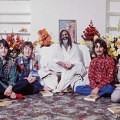

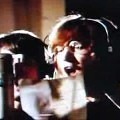
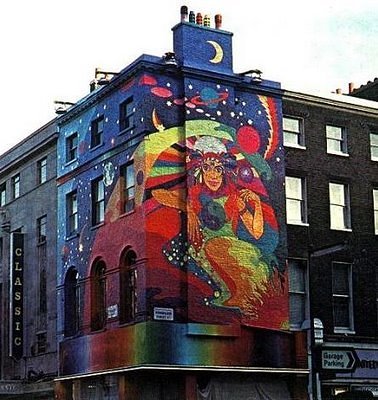
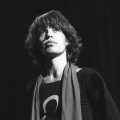

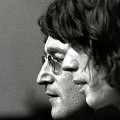
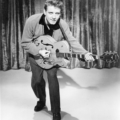
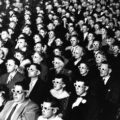
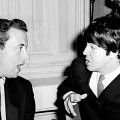
“Of late I’ve become interested in how The Beatles’ trip to India—and specifically George’s interest in India—was rooted in India being part of the Empire.”
Interesting point, I’d never considered that before. British rule in India ended in 1947, and there was an influx of old colonials back to the mother country – soldiers, administrators, engineers, etc. Everyone in England knew a family member or friend who had spent time on the subcontinent, and the Beatles must have grown up hearing about India like every other English kid. I don’t know if they had any relatives there, but at the very least they would have read children’s books about imperial adventure and heard stories about it on the radio. For many people of the older generation it was a kind of lost paradise, where they were respected and obeyed, waited on by servants, and the sun was always shining. The Beatles must have had some of that in their subconscious.
Rudyard Kipling was one of John’s (and I think Paul’s) favorite authors growing up. He was born in India which inspired his work. Incidentally, Pete Best was born in India.
Interesting, @Michelle! Thank you.
Like James Bond (but much less militaristic), The Beatles can be viewed as a cultural coda to the British Empire; a last blast of cultural influence in the face of decolonization.
Yes. I think that India in 1966 would have felt like the perfect mixture of the comfortable and the exotic to George. Looking to get away from the crush of Beatlemania, and into a truly unique culture, but also a place that shared a lot of cultural references and where you could probably get a lot of UK foods/goods if you craved them.
Likewise, on my visit to London and other parts of England some years ago, I was amazed by the ubiquity of Indian restaurants. And much better ones than can be found in the States, at least from my experience.
I have heard this. And of course it would make sense.
Helena Blavatsky – who is regarded in some quarters as the European ‘Godmother’ of Eastern mysticism given that she helped introduce it to the so-called west in the 19th century and was then of course given a boost in popularity by The Beatles decades later – saw out her final days living at Annie Besant’s house in London – in St. John’s Wood, the region of London where Abbey Road is.
This would be an interesting if it could really answer “what happened in India?” One of my favorite posts of Michael’s is in this subject. The one that delves into meditation without a skilled practitioner to help you through the mental parts of it. They were not the same after India.
I have A LOT more to say about that, but am waiting to do a Q and A with Michael Bleicher, who has such interest in the topic, and knows what questions to ask. If we ever do it, I will have to go back afterwards and supply quotes and reading and such, so there’s also a question of my time. But 2022 should be lighter.
I love meditation, it has given me such benefits, but it should be treated like medicine, not volleyball. Many teachers anxious to sell meditation-based practices to the West have said, “It can’t hurt you,” but that simply isn’t so. Too much meditation before you’re ready to handle that it as bad for you as too much aspirin (or even too much water). And the difficulties seem to increase with drug use, and trauma.
Prior to India, John in 1968 was splendidly functional, given what he’d gone through. Beatlemania would’ve broken most people–but a big part of how J/P/G/R could handle it was that it happened slowly, over time, by degrees. India was like going from playing Litherland Town Hall to Shea Stadium overnight.
From the late 60s onward, there was the phenomenon of the “acid casualty,” which described a change in affect, self-image and effectiveness due to too much acid. Psychiatrists who dealt with these folks eventually came to recognize a similar change in some people who had done too much, or too intense, meditation. John doesn’t seem to have ever become an acid casualty–despite incredible intake–but he does seem to become a different person after India. That’s unusual. And the way he acted after that, lots of quick changes, that’s unusual too.
Anyway, someday I’ll write it up.
I look forward to it, Michael. I’ve benefited a lot from meditation, but would not have wanted to go into it blindly like they did. Whew.
Shortly prior to India, these guys were still close enough to entertain the idea of living on a Greek island together with their families in tow. Whatever happened in India anticipated and was more important to the breakup than anything that happened during the Get Back sessions. John’s crisis point in India preceded his renewed and prodigal drug use; his nascent resentment, paranoia and often downright contempt towards Paul; and his decision to abdicate much of his self-agency and cling to Yoko like a life-raft. And it is principally because of these facets that civil communication broke down and could not be followed through when it came to aspects of business that should have been largely impersonal, were secondary to deeper problems, and could otherwise have been amicably solved. India is the key to all this.
Does anyone know when this is available for streaming in the US? Get Back has whetted my appetite for more Beatles.
Just in case you haven’t found it yet Michelle, this is available to rent on YouTube. It’s *really* interesting, though frustrating if you like to know the names of everyone who’s speaking, and the sources of all quotes.
spoiler:
There’s a brilliant bit where someone (see previous comment) outlines what the Maharishi made of each of the Beatles. For some reason, she doesn’t say what he said about Paul (I’m so curious!), but he said Ringo “is meditating all the time”. I love that comment. I imagine Ringo discovering meditation alone in hospital as a child (though of course he wouldn’t have called it that). It ties in with this lovely article:
https://ianleslie.substack.com/p/the-banality-of-genius-notes-on-peter?utm_source=url
@meaigs, careful about blurring what “meditation” is — especially in terms of what was going on in Rishikesh in 1968. It wasn’t sitting there being quiet. It was a specific practice designed to quiet and concentrate the mind, by the endless repetition of a word or syllable, for hours at a time. It’s very different than what a child does alone in a hospital (source: myself, as a child :-).
Thanks, @meaigs!
That’s fair, though it was the Maharishi who used the word to describe Richy’s self taught practice (even if the quote was third hand).
The Maharishi consistently portrayed the techniques he packaged as T.M. as easy, simple, harmless, nothing special. There are several possible reasons he did this — marketing to the West, his own background in much more complex Hindu traditions — but we should remember that it wasn’t easy, simple, always harmless, or nothing special. For the Fabs, it was sitting alone in a room in a foreign country, eating new food, not doing any drugs except cannabis, maybe not having sex, and doing an intense concentration practice for two, three, four, six hours at a time. That’s really intense. That has really intense energetic effects on anybody; it’s like going 180 MPH and slamming on the brakes.
I get out over my skis very quickly on this topic — I’m not a meditation teacher or scholar of religion — but given my own experiences with meditation and teachers of various types, I think some important holes in the Beatles story are filled, or at least could be filled, by this reading of what India was, and the impacts it had on them as individuals with nervous systems. I literally just spoke to a person this weekend who had really harrowing effects from this kind of experience; she was a very experienced meditator, and it hit her funny. Thank god she had a monastic community around her, and a teacher of many years to rely on.
Energetic work, of which meditation is a type, should be done carefully and with respect. Otherwise, it’s just the other side of the Western materialist coin. Anyway, just FWIW. Weird that I had that conversation this very weekend!
I have just read and am impressed with your revamped commenting guidelines which I applaud wholeheartedly. There are a plethora of places people can go on the internet to discuss any aspect of the Beatles until their hearts are content.
I have always enjoyed and recommended your fine work to others of a similar mindset.
But I must strongly object to ( and will probably get banned for this) your continual snarky asides about George.
Case and point, I begin to read this column hoping to learn about their trip to India and am met with ‘George didn’t like beatling but liked the money’. What is the context for this as it relates to the topic? Perhaps that is why it is in brackets? (George was a whingeing malcontent?)
There are more than a handful of instances were either money, indulging in naughty substances or behavior have been injected into a seemingly unrelated post. If your readers are serious Beatles enthusiasts, they A) already know these things, and B) aren’t here for that type discussion.
I know you said it’s your blog and not a democracy, but with all due respect, you’re contravening your own guidelines and belittling George far too frequently.
@SF, this comment will get you THE OPPOSITE of banned! Thank you for it, because it shows that I’m assuming something in our readers’ viewpoints that I shouldn’t. Please remember that I’ve written endless posts about these topics, and so any one post, or even a year’s worth of posts (HD is 14 years old), isn’t going to be representative of my views. They’re big, they evolve; they’re frequently wiseacre-y.
I’m assuming that everybody who reads the site has imbibed the culturally widespread idea of George Harrison as a sort of junior-varsity holy man. The shorthand of George, within and outside the Beatles story, as a Westerner who became fascinated with Eastern mystical religions and attendant physical practices; studied them diligently with excellent teachers; and then reached a kind of higher plane of understanding, both of his life in general, and the Beatles in specific. And kinda rejected materialism as a result, throwing the Beatles out with the bathwater.
The first two are undoubtedly true, and George should be commended for that–I probably don’t do that enough, because I myself have had my life transformed by Eastern mystical traditions and physical practices. I would not be alive today without them, and the only reason they are available to me here in Southern California is the Western cultural turn towards them beginning in 1967-68. Yes, the Beats talked about Zen, but there’s a difference between being able to read Alan Watts’ discussions of Buddhist/Daoist philosophy, and actually learning with master Buddhist/Daoist teachers from Asia, much less having physicians trained in Eastern medicine. That happened because the Baby Boomers were a huge, rich market for those teachers beginning in ’67-68. The Beatles were a HUGE driver of that turn, and within the group, George was the driver.
So I feel a lot of gratitude personally to George, and think about him a lot, probably more than the other three. Because I try to keep my own stuff private (mostly unsuccessfully) I probably don’t share that on Hey Dullblog as much as I should. And speaking as a fellow practitioner, I’m particularly annoyed when biographies of George–specifically the documentary “Living in the Material World”, which is likely to be the to-go source on George–emphasize his spiritual practice but do not speak about his struggles within that practice. Because as they say, “No mud, no lotus.” By the end of his life, George Harrison was quite evolved as a person, but it’s precisely because he had very strong desires and got into many ethical scrapes. It was the friction there; the struggle is how he evolved. And it makes me mad that Martin Scorsese (a heavy coke user himself at times in his life) chose to gloss over George’s behavior out of propriety or squeamishness. That misguided sense of “privacy” that turns famous people into paragons is a significant factor in people’s opinions about morality, addiction & recovery, and the spiritual piece so intimately intertwined with all three.
In the case of George, this is particularly frustrating because it emphasizes the Western misunderstanding of spiritual growth as primarily something you are–or at best are given, via the event of Enlightenment–rather than being something you do. And so I endlessly emphasize George’s love of Earthly delights–fame, money, sex, drugs–to try to counterbalance the commonly held image of him as half-rockstar, half-Hindu holy man.
The only place that I would part with your comment, @SF, is the idea that “liking the money” was a swipe at George. George really didn’t like a lot of what being a Beatle entailed, but he loved the expensive things, travel, and luxury that Beatling afforded him. Who wouldn’t, on both counts? So my aside is both factual–he did like the money–and also understandable–what’s not to like about money?
But more to the point: I actively battle against the dualistic idea of sacred/profane, and the more George seemed to detach from this duality, the happier he got. In the traditions I’m comfortable in, balance is emphasized. So if I were to take a swipe at George (and I wouldn’t, not seriously, especially if he were still alive; you don’t criticize other people’s practice), I would say that he was excessive on both sides. That it is as much a flaw to meditate obsessively, or be totally restrictive in one’s diet, or be very judgmental about others’ behaviors, as it is to drink too much, or drug too much, or have unwise sex, or be focused on money. It’s all greed; it’s all grasping; it’s all out of balance. And if we look at George’s life and behavior in the ten years beginning in February 1968, indeed this is his pattern. Trying to be celibate with Patti (which caused her pain); and then having sex with Maureen (which caused more pain); his struggles with cocaine; his weird love/hate relationship with his fans during the ’75 tour (“You’re going to listen to these ragas and you’re going to LIKE it”); and so forth.
Other commenters do swipe at George, or more the idea of George, because I don’t think many here have thought very deeply about him — so much of what happened with him was internal. But believe it or not, even with our new commenting rules I really do try to edit and moderate as lightly as possible. I trust our readers to perceive an unfair swipe for what it is, and balanced criticism for what it is. And I expect our readers to chime in, as you did, when they feel we’re being unfair. So: perfecto. Thank you.
I can only speak for myself here, but I find George the most interesting of the four Beatles; and I find his relationship with being a Beatle particularly fascinating. It was profoundly love-hate, an externalization of something that George himself mentioned in this excellent interview:
“I try to balance my life with peace and quiet because the other side of it is really rowdy. I’m a Pisces. I am an extreme person. One half is always going down where the other half has just been. I was always extremely up or extremely down, extremely spiritual or extremely drugged.”
Perhaps I should surface my feelings about George in a post, rather than in a comment? George is usually viewed in light of the “John/Paul carve up,” but he’s much more than that. And I do not for a second believe he or Ringo were “Economy-class Beatles.” If all George Harrison ever did was get The Beatles to go to India, he would’ve established a tremendous legacy, one much greater than a bunch of #1 hits.
@Michael Gerber…I would love to read more, regarding your impressions of George. I am a George-fan first, and a Beatles fan second. I would not be so drawn to The Beatles, nor find them as interesting, if George had not been part of it all. I, too, find his struggles fascinating—but at least he did struggle and try to better himself, enlighten himself. In spite of his flaws, I do think he was, at his core, an extremely kind and gentle person. He was constantly attempting to become a better person, to have a highly-developed conscience. So many rock stars just act with impunity, with no qualms about how they treat others around them; George gets props for at least thinking deeply about his situation, his place in it all, the way he felt the fans, too, had their part to live out as well.
Chris O’Dell, in her book, kind of describes George as an observer; every one around him was living this soap-opera existence, and he had a kind of amused detachment about it all, but never judging anyone. He felt that all had their parts to play, and were living out their existences with all the high drama that extreme behaviors were responsible for.
I do think George kind of lost his way with fame. So when I want to understand George, I go back to his childhood and teens, to view him in his natural state, without the burden of looking through the lens of extreme renown and notoriety. Fame, for better or worse, violently wrenched George from the life he would have lived. (It wrenched them all violently away from their lives, their homes, but I feel George was the most affected). I remember his sister-in-law stating that his parents allowed George the freedom and independence he so sought, yet they constantly worried—they felt George was a soft, naive, trusting person in need of protection, a person who could easily be taken advantage of. I think of George in Hamburg, and the lovely words used by Astrid, Jurgen and Klaus to describe him—a shy, sweet, considerate boy, always thoughtful of others. I contemplate on how the people who guided George’s viewpoints towards sex were John and Paul—and how he was thrust into a baptism of fire in Hamburg and all that Hamburg entailed. How would George have perceived sex had he been allowed to find his own way, at his own pace; if initiation into sex had come naturally.
George was responsible for his own actions, but he would not have known how to equate sex with any sort of normality. This trend only continued with the groupies and fans and hangers-on. I guess what I am trying to stress is that, even when success and superstardom hit, somewhere inside George was still the person he was to begin with; those traits didn’t just go away, they were still a large part of who he was, even as he had to harden himself, become numb and jaded and acclimated; and be shaped by events beyond his control. All this does not negate, however, that George also had another side, he was from childhood on also quietly rebellious; he was, his entire life, a highly eccentric person.
Here here. This is wonderfully written. I remember reading these things about him as a child and then realizing he was far too trusting at least in business matters even post Beatles. His partner at Handmade Films, for example.
One of my favorite bits of George are his deep, lasting friendships. From Astrid and Klaus to Ravi and Tom, he had so much light and love to share and did so with an open heart.
Despite this he did seem apart and alone, indeed searching.
I am overjoyed to read this heartfelt response, Michael. Thank you for sharing so much of your connection to George. I look forward that post when you feel the time is right.
As you point out, he definitely was extreme (who could chant Hare Krishna for 24 hours driving around Europe? Had to be some hyperbole in use). He is an incredible example of the duality we all grapple with. Only difference is we can do it behind closed doors, he barely had a moment’s peace. One of my most cherished hopes is that George achieved his ultimate goal.
And yes, he absolutely gave all of us who continue listen much more than #1 songs.
Here are a few words I wrote about George on another forum, n 2011:
George was so independent, he moved through life with his own set of rules. And the way dozens, if not hundreds, of people have described him, as so loving and gentle and full of the hippie sentiment of universal love, I can easily see how he could love outside of established boundaries. Such a love seemed to be pervasive and all-encompassing rather than personal and select, though, George strikes me as kind of alone and constantly searching, on a quest, even when at his happiest with Pattie and/or Olivia.